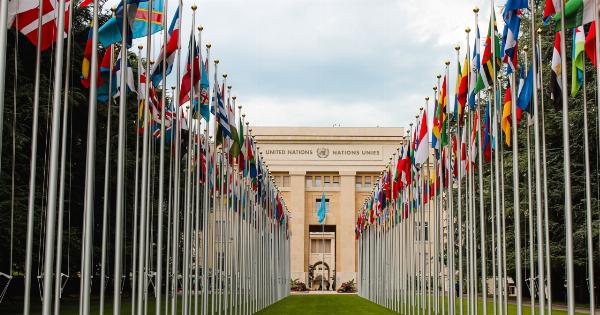In today’s modern world, the connection between the environment and our consumption has become increasingly apparent. Our choices and actions as consumers have significant impacts on the health of the planet.
From the products we buy to the resources we use, every decision we make shapes the environmental landscape. This article will explore the complex relationship between our consumption habits and the environment, highlighting the need for more sustainable practices and emphasizing the role of individuals in creating a greener future.
The Environmental Consequences of Overconsumption
Overconsumption, driven by a culture of consumerism, has led to numerous environmental consequences. The insatiable desire for goods and services has resulted in the depletion of natural resources, pollution, and the destruction of ecosystems.
The manufacturing, transportation, and disposal of products generate vast amounts of greenhouse gas emissions, contributing to climate change. Extraction industries often cause irreversible damage to sensitive habitats and wildlife populations. Additionally, the excessive use of water and energy strains natural ecosystems, exacerbating global environmental problems.
The Role of Consumer Choices
Consumer choices play a pivotal role in shaping the market and influencing companies’ policies and practices. By supporting environmentally conscious products and companies, consumers can drive the demand for sustainable alternatives.
Choosing products with less packaging, prioritizing organic and locally sourced goods, and opting for energy-efficient appliances are just a few ways individuals can make a positive impact. Furthermore, limiting food waste, recycling, and reusing items are simple yet powerful actions that can significantly reduce our ecological footprint.
The Importance of Sustainable Production
While individual actions are crucial, the responsibility also lies with producers and manufacturers to adopt more sustainable practices.
Implementing eco-friendly production methods, such as using renewable energy sources and reducing resource consumption, can help mitigate the environmental impact of manufacturing processes. Transparency and accountability should be prioritized, ensuring that companies are held responsible for their ecological footprint. Consumers should actively support and promote businesses that demonstrate a commitment to sustainable production.
The Influence of Advertising and Marketing
Advertising and marketing play a pivotal role in shaping consumer behavior and influencing our consumption patterns. The constant barrage of advertisements promoting materialistic lifestyles and unsustainable products often perpetuates overconsumption.
To shift the paradigm towards more sustainable choices, advertising and marketing strategies should focus on educating consumers about the environmental impact of their decisions and promoting eco-friendly alternatives. Emphasizing the benefits of environmentally conscious products and encouraging responsible consumption can help change societal norms and foster a more sustainable future.
The Rise of the Sharing Economy
In recent years, the rise of the sharing economy has emerged as a promising trend that aims to reduce resource consumption and waste.
Platforms that facilitate sharing and exchange, such as ride-sharing services and rental platforms, promote a more resource-efficient model of consumption. By utilizing existing resources more efficiently, the sharing economy can help reduce the demand for new production, leading to a decrease in environmental degradation.
Encouraging and supporting the growth of the sharing economy can significantly contribute to sustainable consumption practices.
Policy Changes and Government Initiatives
While individual actions are essential, broader systemic changes and government initiatives are needed to tackle the challenges posed by our consumption patterns.
Governments play a crucial role in implementing regulations and policies that promote sustainability. By incentivizing green practices, providing financial support to eco-friendly businesses, and imposing stricter environmental standards, governments can create an enabling environment for sustainable consumption.
Additionally, public education and awareness campaigns can help shift societal norms and promote sustainable lifestyles.
The Need for Circular Economy
A transition from a linear to a circular economy is essential for achieving sustainable consumption. In a circular economy, resources are used efficiently, waste is minimized, and products and materials are recycled or repurposed.
By designing products with recyclability and durability in mind, businesses can contribute to closing the loop and reducing waste. Consumers should also actively participate in the circular economy by opting for second-hand products or repairing and repurposing items instead of buying new ones.
The concept of waste should be reframed as a valuable resource, encouraging innovation and sustainable practices.
The Role of Technology and Innovation
Technological advancements and innovation have the potential to revolutionize our consumption habits and minimize our environmental impact.
From renewable energy sources and energy-efficient appliances to smart grids and sustainable transportation, technology can play a significant role in promoting sustainability. Innovations in materials science and packaging can reduce waste and pollution, while digital solutions can enable more efficient resource management.
Investing in research and development of sustainable technologies is crucial for building a greener future.
The Power of Collective Action
Ultimately, addressing the connection between the environment and our consumption requires collective action from individuals, businesses, governments, and civil society.
Sustainable consumption should be regarded as a shared responsibility, with each stakeholder playing a crucial role in driving change. By collaborating and supporting one another, we can foster a culture of sustainability and create a healthier planet for future generations. Together, we can make a difference.






























